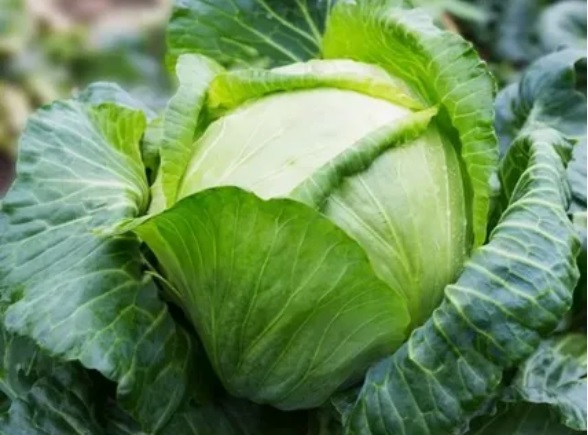Grapes: Growth, Benefits, Uses, and Health Cures
Grapes are a beloved fruit revered for their luscious taste, nutritional value, and versatile uses. From ancient civilizations to modern times, grapes have had a significant presence in daily life and culture. In this article, we will explore what grapes are, where they grow, their benefits, how they can be used, and their health remedies.
What is a Grape, and Where Does it Grow?
A grape is a small, round fruit that grows on a deciduous woody vine belonging to the genus Vitis. Grapes are classified into two primary species:
-
Vitis vinifera, native to Europe and the Mediterranean region, and
-
Vitis labrusca, native to North America.
Growth Regions:
Grapes thrive in temperate climates, and they are cultivated across the globe. Some of the leading grape-producing countries include:
-
Italy, Spain, and France in Europe (renowned for wine production),
-
United States, particularly in California,
-
China and India in Asia, and
-
South Africa and Australia in the Southern Hemisphere.
Grapes grow on vines in clusters and require well-drained soil, plenty of sunlight, and consistent water supply. They are typically harvested in late summer or early autumn, depending on the variety and climate.
What Are Its Benefits?
Grapes are a powerhouse of vitamins, antioxidants, and natural sugars, making them an incredible addition to your diet. Here are some of their key benefits:
-
Rich in Nutrients:
-
Grapes are an excellent source of essential vitamins such as Vitamin C, Vitamin K, and several B vitamins.
-
They are also rich in minerals like potassium, copper, and magnesium, which promote overall health.
-
Packed with Antioxidants:
-
Grapes contain polyphenols, including resveratrol, a potent antioxidant that helps reduce inflammation, combat free radicals, and lower the risk of chronic diseases.
-
Heart Health:
-
Resveratrol, along with other antioxidants, can improve heart health by improving blood flow, lowering blood pressure, and preventing the oxidation of bad cholesterol (LDL).
-
Digestive Aid:
-
Grapes are high in water content and contain dietary fiber, helping improve digestion and preventing constipation.
-
Skin and Hair Care:
-
The antioxidants in grapes protect skin from damage caused by UV rays and pollution. Grapes also help reduce the appearance of fine lines and wrinkles, promoting youthful skin.
-
The Vitamin E in grapes strengthens hair and prevents hair problems such as thinning and breakage.
-
Boosts Immunity:
-
Vitamin C in grapes supports the immune system, protecting the body from infections and illnesses.
Where and How Can We Use Grapes?
Grapes are incredibly versatile and can be used in countless ways in daily life. Here are the common uses of grapes:
-
Eating Fresh:
-
Grapes are often eaten raw, either on their own or as part of fruit salads.
-
Juices and Smoothies:
-
Grape juice is a refreshing drink packed with nutrients and hydration. Grapes can also be blended into smoothies for added flavor and nutrition.
-
Raisins and Dried Grapes:
-
Grapes can be dried to make raisins, which are a portable, sweet, and nutritious snack.
-
Baking and Cooking:
-
Raisins and grape extracts are used in a variety of baked goods, desserts, and savory dishes.
-
Wine Production:
-
Perhaps the most famous use of grapes is in winemaking. Grapes are fermented to produce a diverse range of wines, from reds and whites to rosés and sparkling varieties.
-
Skincare and Cosmetics:
-
Grape seed oil and grape extracts are common ingredients in skincare products due to their hydrating and anti-aging properties.
-
Medicinal Uses:
-
Grape seeds and grape-based extracts, such as resveratrol supplements, are used in alternative medicine and dietary supplements to promote long-term health.
What Are Its Health Cures?
Apart from being a delicious treat, grapes and their byproducts also help prevent and manage several health conditions. Here are some of their remarkable health cures:
-
Cardiovascular Health:
-
A diet rich in grapes may protect against heart disease by improving blood vessel function, lowering triglyceride levels, and reducing blood pressure.
-
Diabetes Management:
-
Despite their natural sugar content, grapes have a low glycemic index and may help regulate blood sugar levels. The antioxidants in grapes also improve insulin sensitivity.
-
Cancer Prevention:
-
Studies have shown that resveratrol in grapes may inhibit cancer cell growth and protect against certain cancers, including breast, colon, and prostate cancer.
-
Brain Health and Memory:
-
Grapes are known to enhance brain function and protect against neurodegenerative diseases like Alzheimer’s due to their anti-inflammatory and antioxidant properties.
-
Weight Loss:
-
The fiber and water content in grapes promote a feeling of fullness, making them an excellent fruit for those trying to lose weight.
-
Eye Health:
-
Grapes contain lutein and zeaxanthin, antioxidants that support eye health and reduce the risk of age-related macular degeneration and cataracts.
-
Liver Detoxification:
-
Grapes can help detoxify the liver by flushing out harmful toxins and promoting overall organ health.
-
Joint Pain Relief:
-
The anti-inflammatory compounds in grapes, such as proanthocyanidins, may help reduce arthritis symptoms and alleviate joint stiffness.

## Beyond Snacking: Unlock the Culinary Potential and Health Benefits of Grapes
Grapes, those juicy little orbs bursting with sweetness, are often relegated to the snack bowl or fruit platter. However, these versatile berries offer a surprising range of culinary possibilities and pack a powerful punch of health benefits. Let’s explore the practical dishes you can create with grapes, the ideal dishes where they shine, the health advantages they provide, and even how they can contribute to cold and flu relief.
**Practical Dishes with Grapes: From Savory to Sweet**
Grapes are incredibly adaptable in the kitchen, lending themselves beautifully to both savory and sweet creations. Here are a few practical dishes to try:
* **Roasted Grapes with Chicken or Pork:** Roasting grapes intensifies their sweetness and creates a delicious, caramelized flavor. Toss them with olive oil, salt, pepper, and herbs like rosemary or thyme before roasting alongside chicken pieces or pork tenderloin.
* **Grape and Walnut Salad:** Add a burst of freshness and texture to your salad with halved grapes. Combine them with mixed greens, toasted walnuts, crumbled goat cheese, and a light vinaigrette for a delightful and healthy lunch or side dish.
* **Grape and Cheese Skewers:** A simple yet elegant appetizer. Thread grapes onto skewers with cubes of cheddar, brie, or even mozzarella. Drizzle with a balsamic glaze for added complexity.
* **Grape Salsa:** A refreshing and unexpected twist on traditional salsa. Combine chopped grapes with red onion, jalapeno, cilantro, lime juice, and a touch of honey.
* **Grape Juice Reduction for Sauces:** Simmer grape juice until it reduces into a thick, syrupy glaze. This can be used to add depth and sweetness to sauces for meats, vegetables, or even desserts.
* **Grape Pie or Tart:** Grapes, particularly concord grapes, make a delicious and unique filling for pies and tarts. Their slightly tart flavor balances the sweetness of the pastry.
* **Grape Jam or Jelly:** Preserve the taste of summer by making grape jam or jelly. Homemade spreads are always a welcome addition to breakfast toast or afternoon tea.
**For Which Dishes are Grapes Best Preferred?**
Grapes truly excel when you want to achieve a few key things in a dish:
* **Balance:** Their sweetness balances out savory flavors, creating a more complex and satisfying experience. Think of pairing roasted grapes with salty meats or creamy cheeses.
* **Texture:** Grapes add a juicy burst and a slight resistance that contrasts well with softer textures like cheeses or cooked vegetables.
* **Acidity:** Certain grapes, like green grapes, offer a pleasant acidity that can cut through richness and lighten up heavier dishes.
* **Visual Appeal:** Grapes add a pop of color and vibrant freshness to any dish, making it more visually appealing.
**The Benefit to Health: A Nutritional Powerhouse**
Grapes are packed with nutrients that contribute to overall health and well-being:
* **Antioxidants:** Grapes, especially red and purple varieties, are rich in antioxidants like resveratrol and flavonoids. These compounds protect cells from damage caused by free radicals, potentially reducing the risk of chronic diseases like heart disease and cancer.
* **Heart Health:** Resveratrol has been shown to improve blood flow, reduce blood clots, and lower cholesterol levels, contributing to a healthier cardiovascular system.
* **Brain Health:** Studies suggest that grapes may improve cognitive function and memory, potentially protecting against age-related cognitive decline.
* **Eye Health:** Grapes contain lutein and zeaxanthin, antioxidants that are beneficial for eye health and may reduce the risk of macular degeneration.
* **Fiber:** Grapes provide a moderate amount of fiber, which aids in digestion and helps regulate blood sugar levels.
* **Vitamins and Minerals:** Grapes are a good source of vitamins C and K, as well as potassium, which helps regulate blood pressure.
**Grapes and Cold & Flu Relief: More Than Just a Sweet Treat**
While not a cure-all, grapes can offer some support during a cold or flu:
* **Vitamin C Boost:** Vitamin C is known to support the immune system. While grapes aren’t exceptionally high in Vitamin C, they contribute to your overall intake.
* **Hydration:** Staying hydrated is crucial when you’re sick. Grapes have a high water content, helping you maintain proper hydration levels.
* **Antiviral Properties:** Some studies suggest that certain compounds in grapes may have antiviral properties, potentially helping to fight off viral infections.
* **Soothing Sore Throats:** The sweet and juicy texture of grapes can be soothing for a sore throat. Consider eating chilled grapes or drinking diluted grape juice.
**Important Considerations:**
* **Sugar Content:** Be mindful of the sugar content in grapes, especially if you have diabetes or are watching your sugar intake.
* **Pesticides:** Opt for organic grapes whenever possible to minimize exposure to pesticides.
**In conclusion,** grapes are more than just a convenient snack. They are a versatile ingredient that can elevate your culinary creations, offer significant health benefits, and even provide some comfort during a cold or flu. So, explore the endless possibilities that these delightful berries offer and unlock their full potential in your kitchen and for your well-being.
Grapes are not just a delicious and refreshing fruit, but also a nutritional powerhouse with numerous health benefits. Thriving in regions with moderate climates, grapes have a long history of culinary and medicinal uses, spanning from winemaking to skincare. Whether you choose to enjoy them fresh, dried, juiced, or in the form of wine, incorporating grapes into your life can provide an array of nutrients and health benefits. From improving heart health to supporting brain function, this tiny fruit certainly proves that big things come in small packages! So, grab a bunch and indulge guilt-free in this sweet and healthy treat.
You can read below writings
what is green tea and where does it grow
Guide to Black Tea: Origins, Benefits, Uses
Nature’s Calming and Healing Wonder Linden






